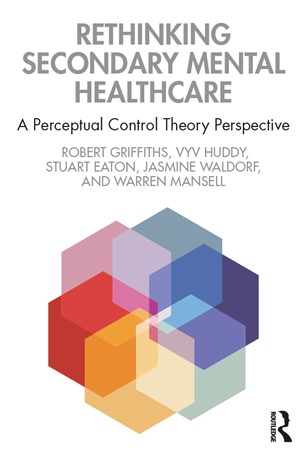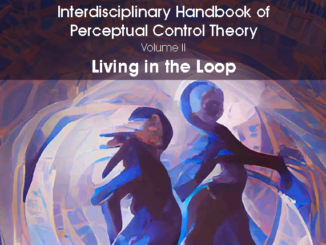Robert Griffiths, Vyv Huddy, Stuart Eaton, Jasmine Waldorf, Warren Mansell

ABSTRACT
This book considers how principles derived from a theory of human behaviour – Perceptual Control Theory – can be configured to create mental health services that are more effective, efficient, and humane.
Authored by clinicians, academics, and experts-by-experience, the text explores the way Perceptual Control Theory (PCT) principles can be applied within the secondary mental healthcare system – from the overall commissioning and design of services to the practice of individual clinicians. A range of topics relevant to the delivery of secondary mental healthcare are covered, including community and inpatient working, the delivery of individual psychological therapy, the use of restrictive practices, and working with relatives and carers. The book concludes by describing PCT’s unique contribution to the field of mental healthcare.
The book, one of the first of its kind, will be of interest to students and practitioners from a range of health and social care backgrounds, as well as service managers, commissioners, academics, and policy makers.
TABLE OF CONTENTS
Chapter 1: Introducing an Approach to Secondary Mental Healthcare that is Informed by Perceptual Control Theory Principles
Chapter 2: A Perceptual Control Theory Account of Mental Health, Psychological Distress, and Wellbeing
Chapter 3: Using Perceptual Control Theory Principles to Improve Secondary Mental Healthcare
Chapter 4: Individual Psychological Therapy: The Method of Levels
Chapter 5: Adopting Perceptual Control Theory Principles in Mental Health Inpatient Settings and other Restrictive Contexts
Chapter 6: Towards a Perceptual Control Theory-Informed Framework for Ethical Decision Making in Secondary Mental Healthcare
Chapter 7: Working with Relatives and Carers of People Using Secondary Mental Healthcare
Chapter 8: Perceptual Control Theory as a Unique Biopsychological Approach to Secondary Mental Healthcare



